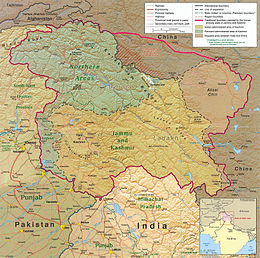
The flashpoint came when Waheed Para, a member of the People’s Democratic Party (PDP), tabled a resolution calling for the reinstatement of Article 370, which he claimed reflects the will of the region’s residents. Para’s move drew immediate and sharp opposition from Bharatiya Janata Party (BJP) representatives, who argued that the resolution was a breach of parliamentary decorum. BJP MLA Sham Lal Sharma insisted that Para’s actions should result in disciplinary measures, describing the resolution as a “provocation” to reignite a settled matter. Speaker Abdul Rahim Rather struggled to contain the escalating tensions as other lawmakers rallied in support or opposition.
Chief Minister Omar Abdullah, of the National Conference, provided a tempered response, downplaying the significance of the resolution but acknowledging that sentiment against the 2019 repeal persists within Jammu and Kashmir. Abdullah commented that while Para's resolution could be interpreted as a symbolic gesture, it nevertheless highlights a persistent opposition to the revocation among regional leaders. Abdullah noted, however, that bringing up such issues without prior discussions risks appearing as a “staged performance,” referencing recent criticisms of symbolic actions undertaken by local politicians.
The tensions extended beyond the assembly floor as Mehbooba Mufti, PDP president and former chief minister, expressed support for Para’s resolution, calling it an essential stand for the state’s autonomy. Mufti’s stance resonates with a section of the population and regional political leaders who argue that the repeal of Article 370 deprived the state of a foundational component of its political identity and autonomy.
Adding another layer to the day’s drama, Sajjad Lone of the People’s Conference took the opportunity to criticize Abdullah’s perceived ambivalence. Lone suggested Abdullah’s recent meetings with Prime Minister Narendra Modi and other central leaders conflicted with his party’s stand on local autonomy, particularly when symbolic gestures, such as gift exchanges, were made during his visits. Abdullah rebutted, arguing that dialogue with the central government does not equate to compromising his stance on Jammu and Kashmir’s autonomy.
As the debate intensified, multiple members from both sides engaged in pointed exchanges, with several stepping into the well of the house to make their positions clear. BJP legislators emphasized that the 2019 decision was a final one, asserting that discussions on Article 370 are moot given the central government’s determination. NC members countered by suggesting that even settled decisions must be revisited when they impact the region’s identity and autonomy.
